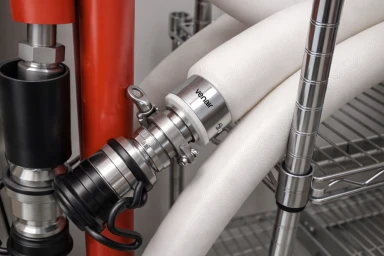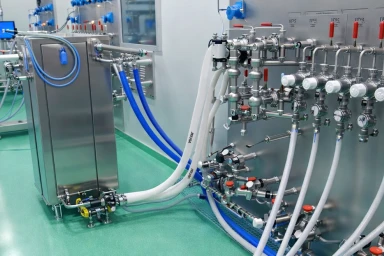mRNA: A Game-Changer in Medicine and Biotechnology

mRNA technology, or messenger RNA technology, is a rapidly developing field with the potential to revolutionize the way we approach medicine and biotechnology.
mRNA, short for messenger RNA, is a molecule that carries genetic information from DNA to the ribosomes, where it is translated into proteins. This process, called protein synthesis, is the basis for life as we know it, and is essential for the functioning of all living organisms.
Harness the power of mRNA to create new therapies
In recent years, scientists have begun to harness the power of mRNA to create new therapies for a wide range of diseases. This is possible because mRNA can be easily and quickly engineered to carry specific instructions for the production of a desired protein. By introducing these engineered mRNAs into cells, researchers can induce the cells to produce the desired protein, effectively creating a "living drug."
Development of vaccines
One of the most exciting areas of research in mRNA technology is in the development of vaccines. Traditional vaccines use a weakened or inactivated form of a virus or bacteria to stimulate the immune system to produce antibodies. However, with mRNA vaccines, scientists can simply use the genetic code of the virus or bacteria to create an mRNA that instructs cells to produce a piece of the virus or bacteria, called an antigen. This antigen then stimulates the immune system to produce antibodies without the need for the whole virus or bacteria.

mRNA technology has been used to develop a COVID-19 vaccine that was authorized for emergency use by the US FDA and other countries around the world. These vaccines use a small piece of the genetic code of the SARS-CoV-2 virus (the virus that causes COVID-19) to create an mRNA that instructs cells to produce the virus's spike protein. The spike protein is then recognized by the immune system, which produces antibodies to it. This can help protect against infection if the person is exposed to the live virus.
Cancer treatment
Another area where mRNA technology is showing great promise is in the treatment of cancer. Researchers are using mRNA to create "personalized" cancer therapies that target specific proteins that are over-expressed in a patient's cancer cells. By engineering mRNA to carry the instructions for producing these proteins, researchers can induce the patient's own cells to produce these proteins, effectively "training" the immune system to recognize and attack the cancer cells.
The potential of mRNA in industrial biotechnology and agriculture
However, it's not just in the medical field where mRNA technology will be useful. The potential of mRNA technology in agriculture and industrial biotechnology is also huge. mRNA can be used as an efficient and precise tool to introduce new traits in crops such as disease resistance, better quality, and higher yield. In industrial biotechnology, mRNA can be used to improve the production of enzymes, chemicals and biofuels.

Conclusion
In conclusion, mRNA technology is a powerful tool with the potential to revolutionize medicine, agriculture, and industrial biotechnology. With mRNA vaccines and therapies for cancer already in clinical trials, it is likely that we will see more and more applications of this technology in the years to come. Venair as a company that manufactures silicone tubing and integrates single use systems for the bioprocessing industry can benefit from this technology by adapting to the new needs of the market, like the manufacturing of more efficient and precise systems for the development of mRNA-based drugs.






